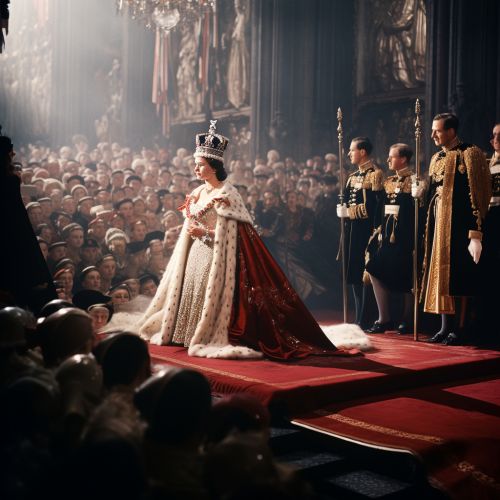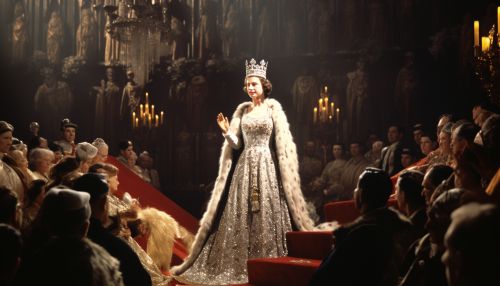Elizabeth II
Early Life and Education
Elizabeth II was born on 21 April 1926, in London, to the Duke and Duchess of York, later known as King George VI and Queen Elizabeth. Her father ascended the throne on the abdication of his brother King Edward VIII in 1936, from which time she was the heir presumptive. She was educated privately at home and began to undertake public duties during the Second World War, serving in the Auxiliary Territorial Service.
Accession and Early Reign
In 1952, her father's death led to her ascension to the throne at the age of 25. The coronation took place in 1953 and was significant as the first to be televised. Her reign has seen major constitutional changes, such as devolution in the United Kingdom, Canadian patriation, and the acceleration of decolonisation of Africa.


Later Reign
Her reign has also encompassed major world events including the end of the Cold War, the Falklands War, and the ongoing issue of Brexit. She has been the longest-serving current head of state, having reigned since 1952. Elizabeth has occasionally faced republican sentiments and press criticism of the royal family, in particular after the breakdown of her children's marriages, her annus horribilis in 1992, and the death in 1997 of her former daughter-in-law Diana, Princess of Wales.
Personal Life
Elizabeth married Prince Philip, Duke of Edinburgh, in 1947. They had four children: Charles, Prince of Wales; Anne, Princess Royal; Prince Andrew, Duke of York; and Prince Edward, Earl of Wessex. Prince Philip died on 9 April 2021, just two months before his 100th birthday.
Legacy and Impact
Elizabeth's reign has had a significant impact on the British monarchy and its role in the modern world. Her long tenure has provided a sense of continuity and stability during times of rapid social and political change. She has also played a crucial role in maintaining the relevance of the monarchy through her dedication to public service and her ability to adapt to changing societal expectations.
